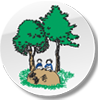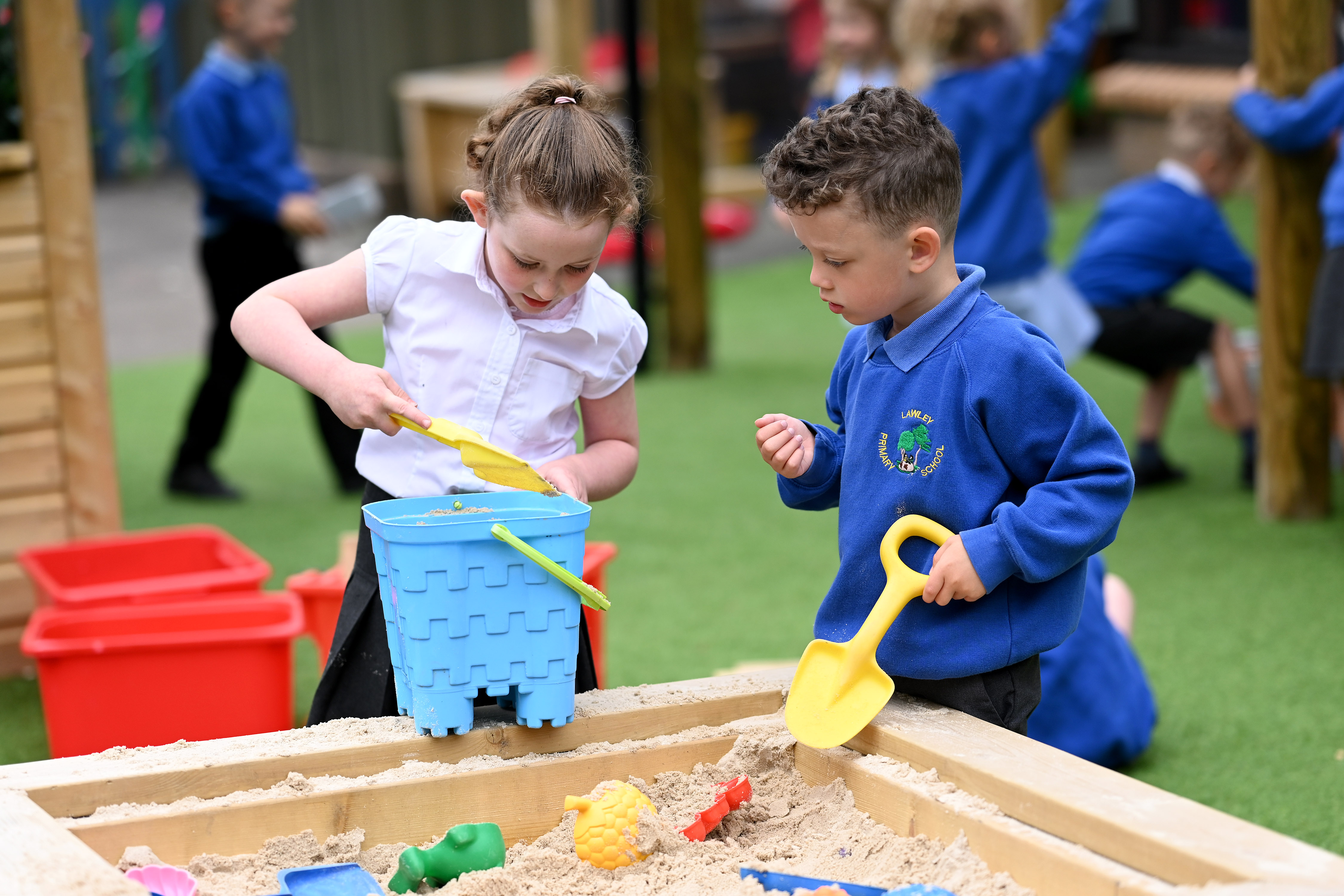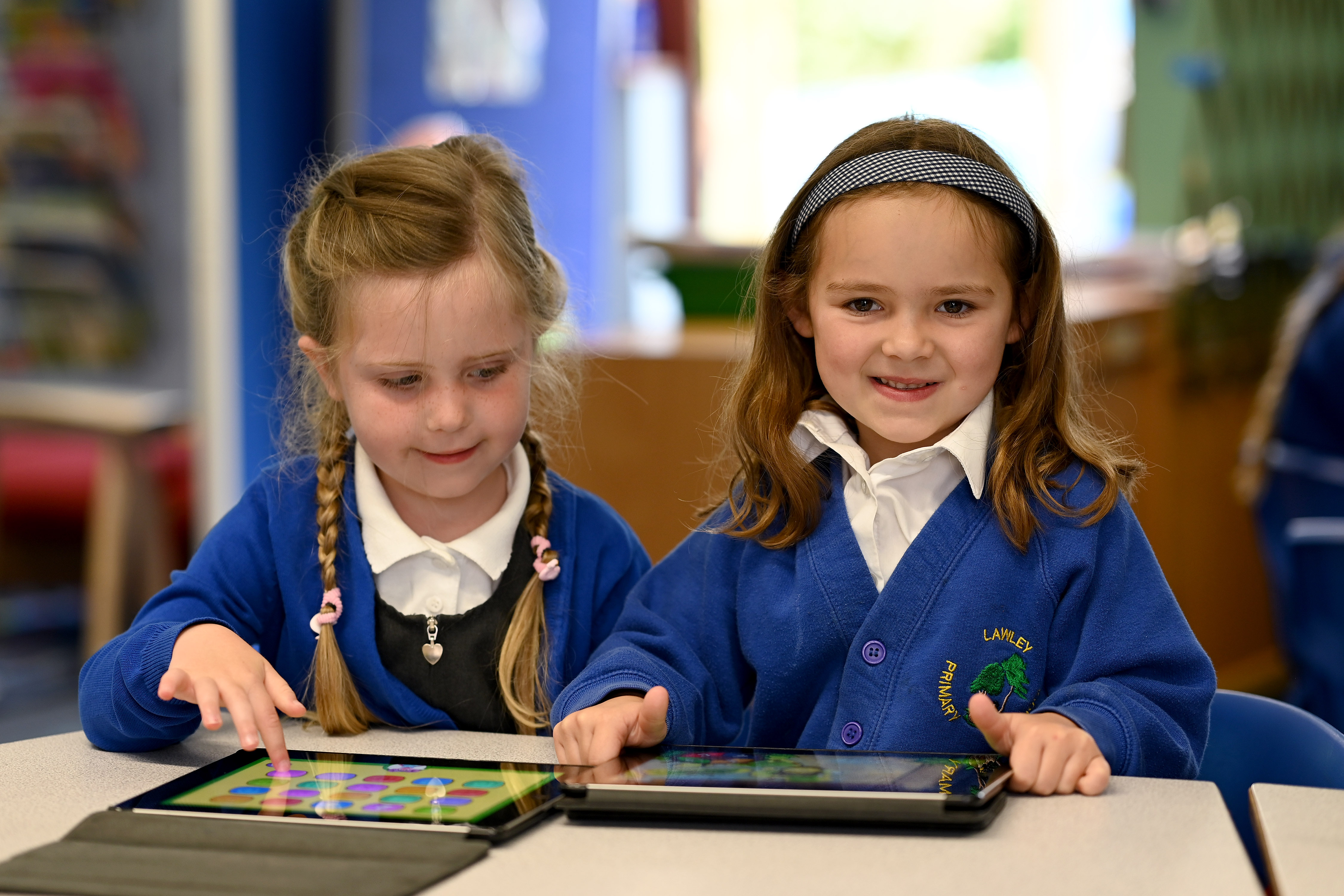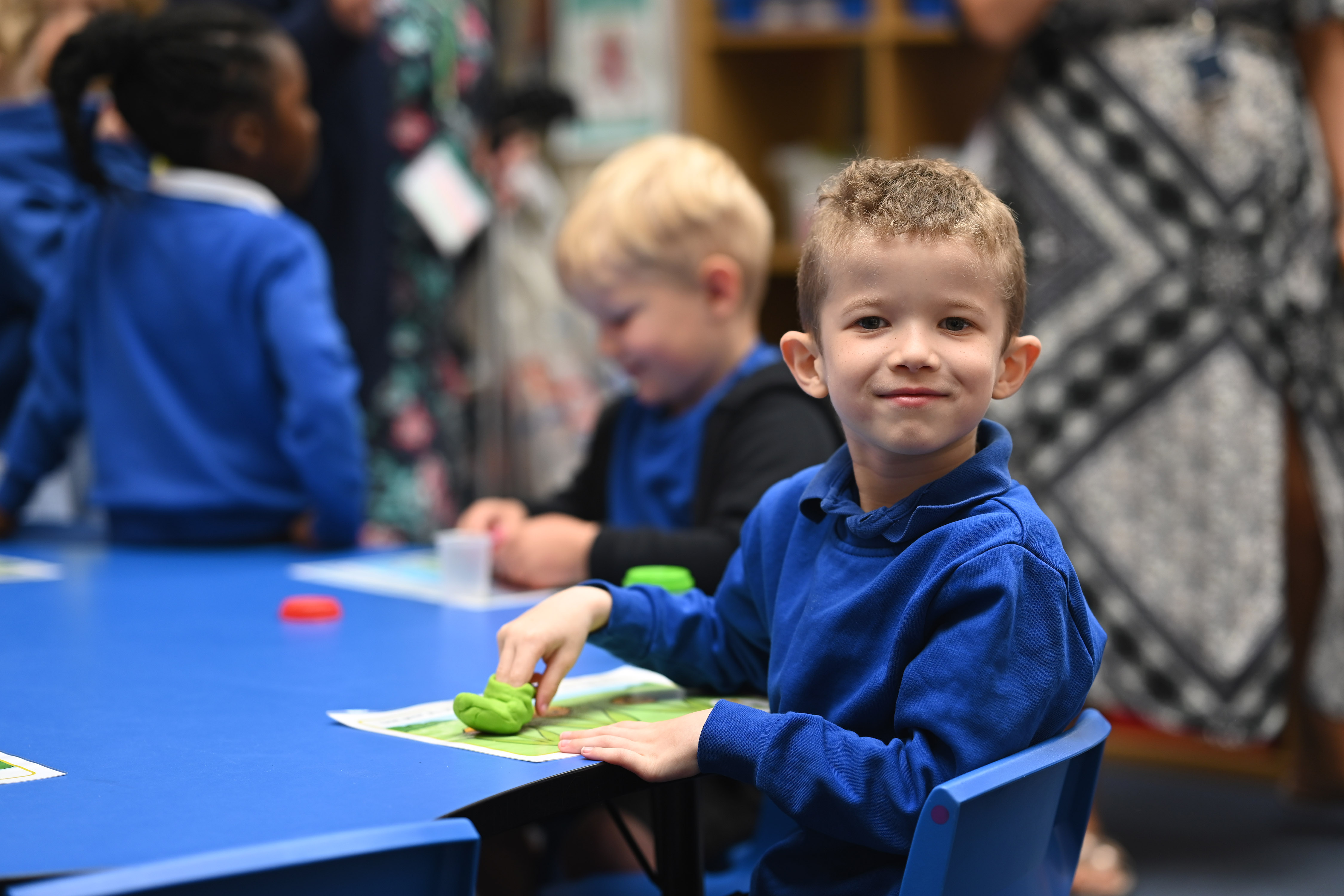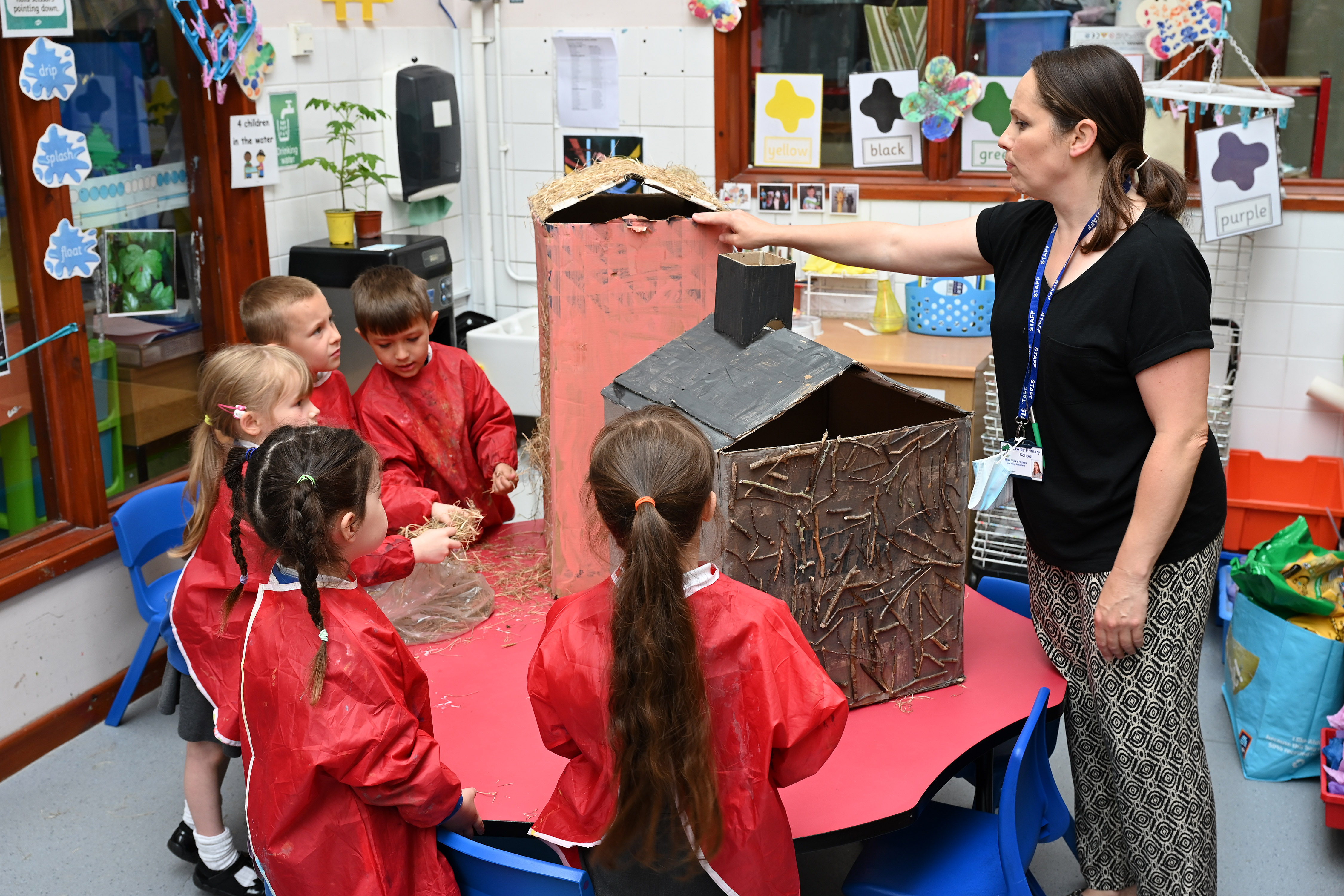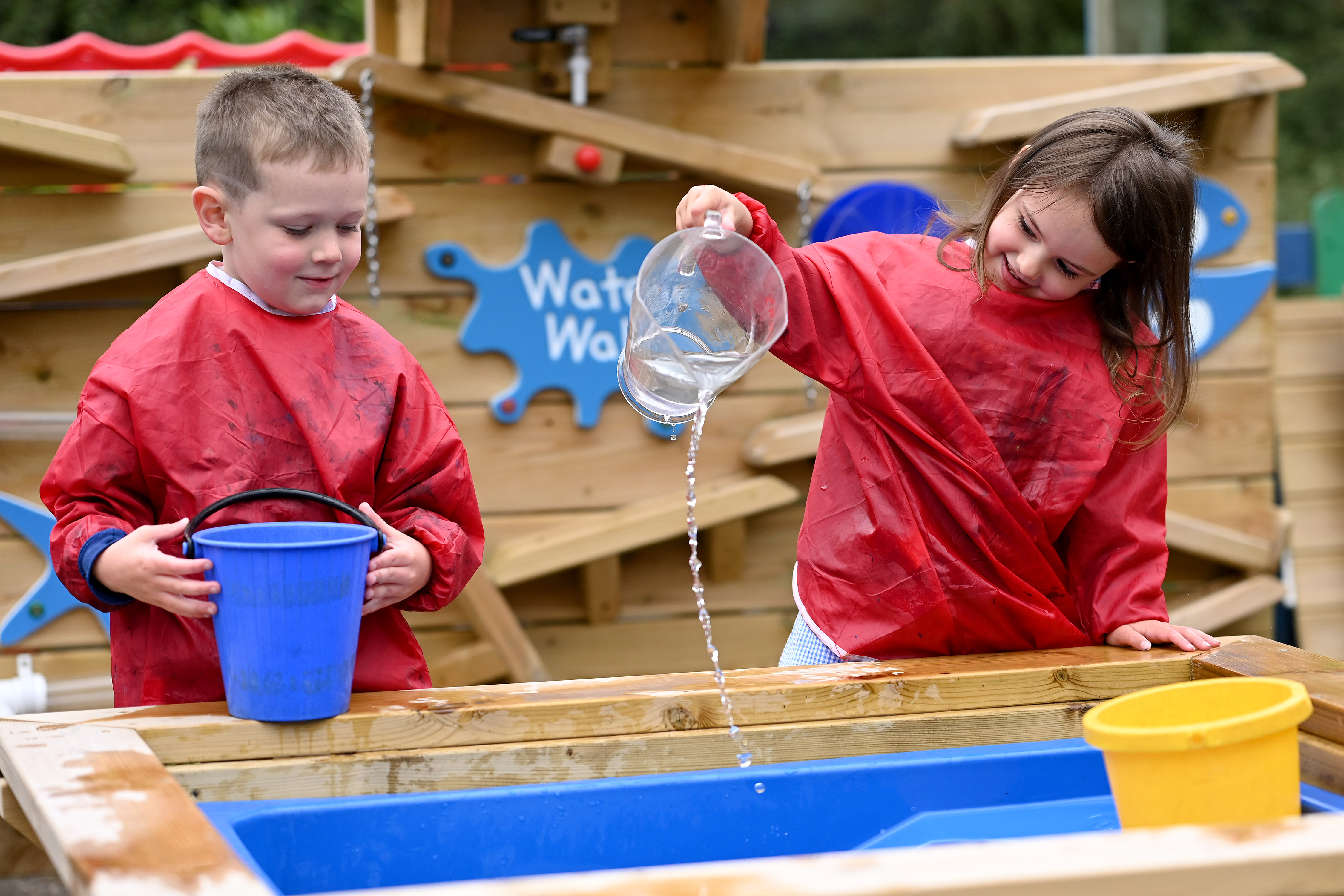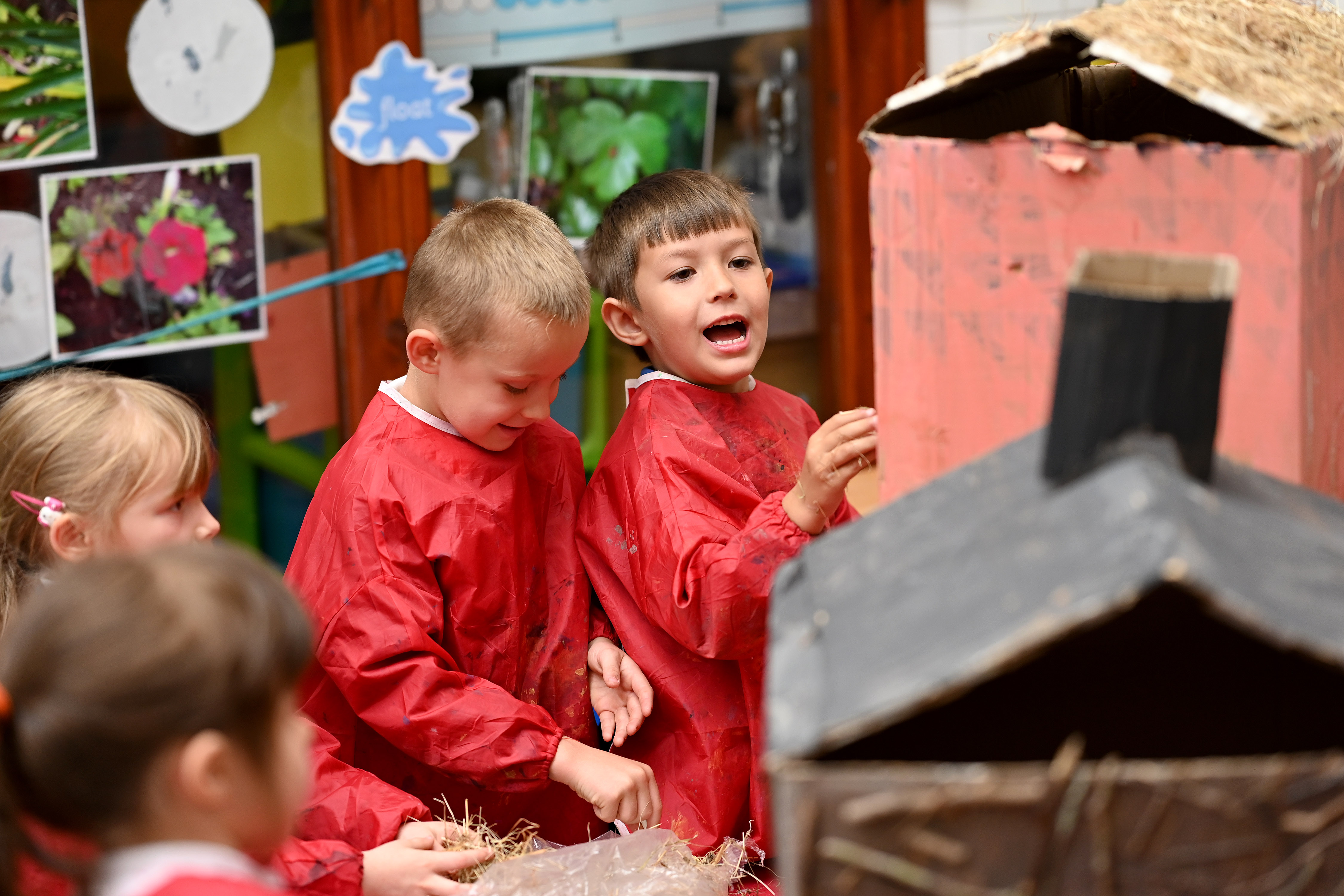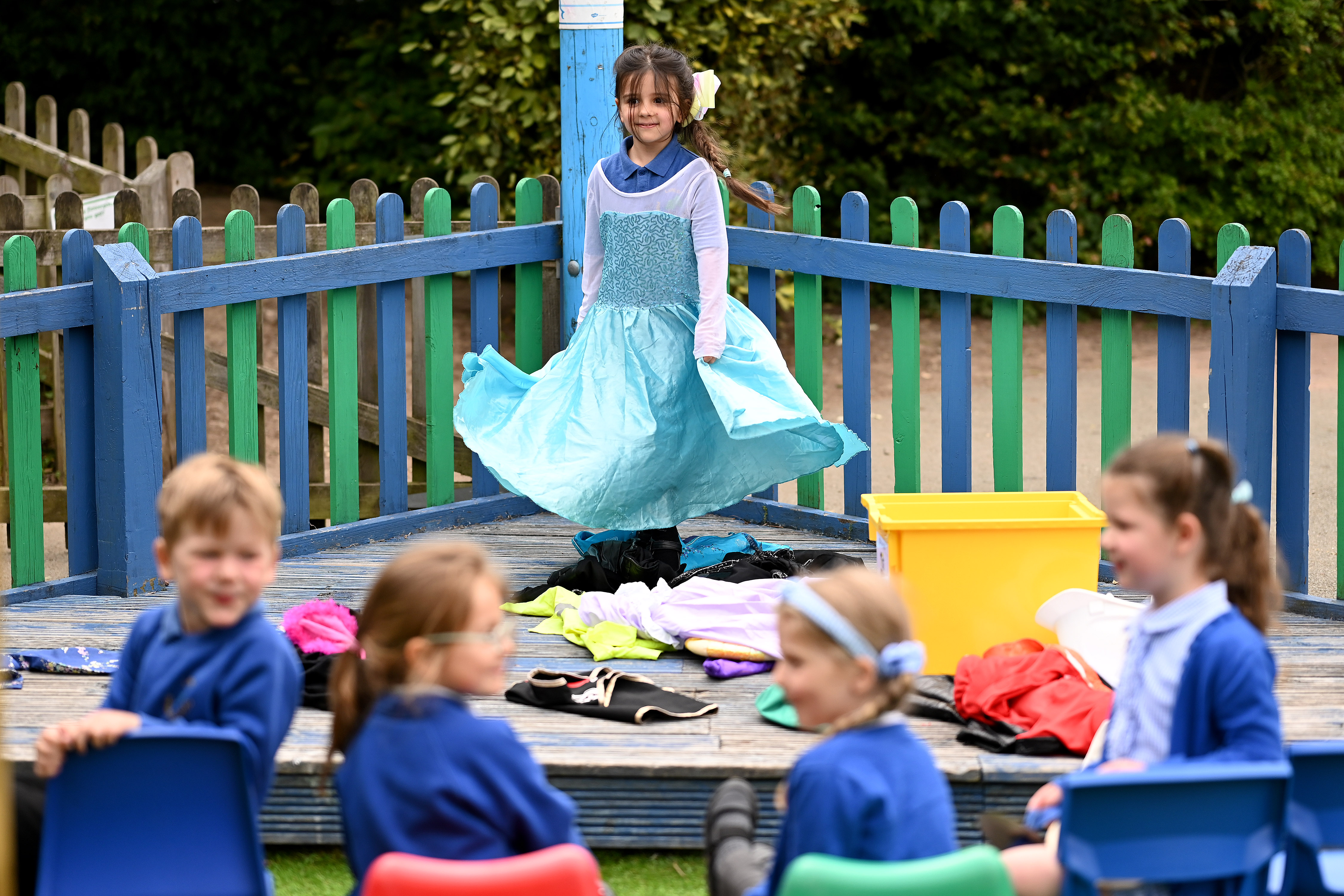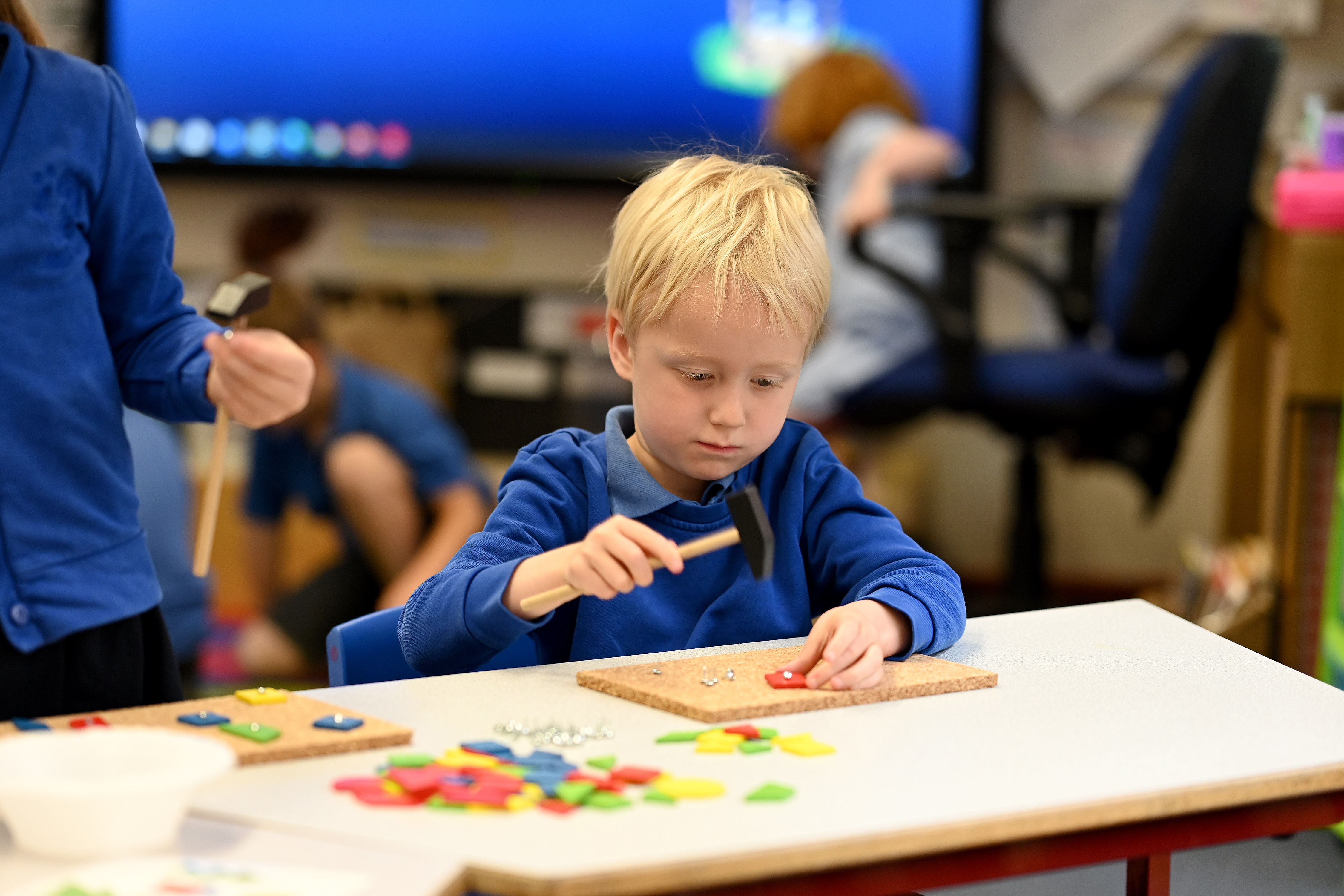

| EYFS at Lawley Primary School |
Our school vision:
| The whole school community at Lawley have high expectations for our children, and strive to ensure they leave school as confident, polite and independent young people, with the appropriate skills, values and learning to become successful in whatever their future will be. We aspire to instil in all our children a desire to never stop learning and to have the courage to succeed in whatever they do, across all areas of school life and beyond. At Lawley we are ‘Planting the seeds, growing the future.’ |
Led by Melissa Allcock
Our Intent:
The Early Years Foundation Stage at Lawley cares for and educates children between the ages of four and five. Within the Early Years Foundation Stage Unit, there are two bases for up to sixty full-time reception age children.
Most of the children starting at Lawley have attended pre-school. We have a large number of feeder nurseries/pre-schools and we aim to develop good relationships with all of our feeder settings; we have forged particularly strong links within our Hub “The Ironstone Childrens Hub” with the local nurseries and childcare providers.
We have two bases which form one classroom, and we have a middle area and an outdoor classroom. Children are able to access all of these areas. In the first term, we dedicate a larger percentage of our school day to Child Initiated Learning (see transition section). There are two qualified teachers and two full time teaching assistants.
We use a variety of online resources to support the implementation of the Early Years Curriculum and to aid and enhance home school learning opportunities. Including Phonics Bug, Bug Club, Evidence me, Click4Teaching-maths and Showbie.
The four principles of the Early Years Foundation Stage underpin our everyday practice in the EYFS at Lawley:
- Every child is unique: learning at different rates, in different ways and different starting points. Each child has their own story.
- Positive relationships: children can learn to be strong and independent from a base of secure and safe relationships with parents and key adults.
- Enable learning environments that can support, extend and challenge a child’s development, both indoors and out, for all children. Changes to our environments are driven by observations and assessment of children’s next steps and interests. We offer an environment that values everyone and learning.
- Learning and development: providing learning opportunities set in meaningful contexts, balance of all areas of learning, indoors and outdoors. There is a balance of learning opportunities. We plan challenging, yet playful opportunities across the prime and specific areas of development.
At the heart of all learning opportunities, planned and spontaneous, are the characteristics of effective learning: playing and exploring, active learning and creating and thinking critically.
Aims of The Foundation Stage:
- To nurture the partnership, we have with parents by working together in a climate of mutual respect.
- To address the individual needs of all pupils through early identification, planned intervention and support.
- To ensure we practise equality of opportunity in our day-to-day interactions with each other.
- To meet the emotional needs of pupils through the development of self-esteem, success, independence and enjoyment so that they feel valued and disposed to learn.
- To further develop links with the community and local agencies, supporting one another and the families we work with.
- To provide a rich and stimulating environment that is well organised and accessible. Indoor and outdoor opportunities will reflect the seven areas of learning.
- To plan and offer purposeful, hands-on learning experiences taking into account the ability of our pupils and their prior knowledge.
- To ensure that pupils are able to access a balance of child-initiated and adult-directed activities.
- To encourage pupils to respect and carefully utilise our environment, its resources and people's belongings.
- To work together as a team committed to raising achievement and developing professionally to meet the challenge of our ever-changing roles.
Our Implementation:
The Curriculum is planned using the revised Statutory Framework/Development Matters/Birth to Five documents, which have been merged by the EYFS lead into one progression document for our school, with the addition of some extracurricular goals linked to the expertise of the staff working in the EYFS.
Long-term planning shows coverage and themes throughout the 6 half terms divided into the areas of learning. Statements in the curriculum have been broken down to show progression of knowledge and skills throughout the terms.
Short term planning: weekly plan
Specific activities and learning opportunities are planned for weekly, from learning outcomes rather than activity. Learning objectives and success criteria are identified using our EYFS school progression document. Our planning is prioritised by assessments of prior learning outcomes and reflects children’s needs and interest. All areas of learning are planned for both indoors and outdoors.
Observations: Observations are a key part of our learning about each individual child. We use a programme called Evidence Me for our observations – identifying the area of learning that has been observed. We record what the child could do, any scaffolding that was provided and any progress noted from this and provide next steps in the child’s individual learning. We use the observation platform to track progress in all areas of learning and spot gaps in teaching/learning to inform our planning/observation timetable.
Learning
All Early Years children have extensive opportunities to play. We recognise the importance of learning through play and the provision of stimulating, practical experiences. The children take part in adult-directed, adult-led, child-led and child-initiated play.
We also believe that to prepare children for learning in later years they need to experience sessions of adult led focussed teaching, particularly in the areas of writing, maths and phonics. We strive as Early Years practitioners to create a balance between play-based learning and a more formal adult led structure.
During Reception there will be: |
|
Adult led focus teaching. A proportion of Child Initiated Learning. Adult directed independent tasks. Child led play. Shared playtimes with Years 1 and 2. Daily class assemblies. Weekly Reception / KS1 assembly. Weekly whole school celebration assemblies. |
Partnership with Parents: Parents are encouraged to be involved in all aspects of their child's education. There are induction programmes in place for new reception children along with the opportunity for a home visit to meet new children and families.
We hold welcome afternoons and parent teacher consultations in the Autumn and Spring Term. We also hold parent / family afternoons each term.
Parents are informed of the term's planning activities, outings and special events through a half-termly newsletter via e mail.
Parents are also invited to attend a phonic reading workshop in the Autumn term.
We share observations with Parents of children’s progress via our observation platform Evidence Me/Showbie.
Role of the Foundation Stage Lead
- To lead the EYFS team and maintain a shared philosophy and ethos
- To exemplify good Early Years Practice
- To be responsible for the general management and health and safety in the EYFS
- To work closely with the EYFS team to ensure that the curriculum is broad, balanced and appropriate
- To take ultimate responsibility for documentation
- To initiate improvements, in consultation with the SLT
- To keep abreast of professional and legal developments, attend relevant professional courses in the Early Years and disseminate information to the EYFS team.
- To ensure that all practice is in line with authority and national statutory guidelines
- To support the SLT in the analysis of data and monitor the school’s provision in relation to the EYFS curriculum guidance and statutory framework – informing planning, SDP, budget requirements, training needs
- To provide updates to the SLT when requested
- To present data and any other monitoring outcomes to Governors when appropriate.
Induction and Transition: Effective transition into school is crucial – it is important to us that children feel happy and secure in their new learning environment. With this in mind, we are the lead school in a local hub “The Ironstone Childrens Hub”, whereby we share information, resources, training and ideas with local Schools, Nurseries, Childminders and other childcare providers.
Our children come from many different pre-schools. We now carryout home visits, where we meet with the children and their families in their home environment. If this is not possible, we will contact the nursery and speak to the key workers. All pre-schools are asked to send a transition document with key information regarding the child to aid a smooth transition. We also invite our two main feeder nurseries to join us for three transition sessions including a teddy bears picnic, a forest school afternoon and a school dinner.
Our induction for children starting school in Reception:
- Children are split into 2 groups – morning and afternoon – this is done on dates of birth.
- Initial meeting with all parents where they can meet staff, tour the school and find out about school procedures – Summer Term.
- Visit to school during Summer Term – with children for a morning or an afternoon session. Children also have 1 session without parents.
- Parents are offered a 1:1 meeting with their child’s class teacher in the summer term before starting school to share any additional information about their child. To answer any questions / concerns they may have. This is done through teams or face to face.
- Parents meeting – end of summer term – Class teachers share information about our school routines e.c.t.
- Class teachers visit as many Nursery settings as possible to meet the children in the summer term before starting.
- Reception host a Teddy Bears Picnic in Summer term and invite the school starters from the local Nurseries to attend with their adults.
- Part time induction – first week.
Children who defer – we will make arrangements for induction as appropriate for any children whose parents have deferred their entry to school.
Monitoring: We are part of the whole school monitoring cycle. In addition, the Senior Leadership Team is aware of teaching and learning experiences and achievement in the EYFS phase through:
- Planning
- Regular book scrutiny
- Learning walks
- Observations
- Pupil voice
As a team we have a monitoring system in place to ensure that we are providing a broad and balanced curriculum and that children are accessing all areas of learning and development. This information is shared with all staff at our weekly EYFS team meetings.
We are also embarking on a cluster moderation cycle with our local Primary schools within our Hub.
Our Impact:
Data: Data regarding the progress and attainment of pupils, obtained from the observations and assessments made in the Early Years Foundation Stage will be used in the following ways: -
- To identify and plan to address areas of weakness in order to improve development and progress in these areas for individual and groups of children.
- To identify issues for any vulnerable groups and track the progress and attainment of these groups in comparison to other pupils.
- To inform the Early Years Foundation Stage School Development Plan.
- To track children across the Foundation Stage and identify at which age and stage the children are currently working.
- To plan the next steps in a child’s development
- To identify how well the setting is performing in comparison with local and national data.
- Transition Meetings - Data will be used to look at which Early Learning Goals (ELGs) particular groups of children have not achieved. The KS1 teachers will have information that will enable them to identify and plan to address the ELGs that pupils are still working towards.
Assessment: There are many ways we assess the children in Reception.
- We measure children's attainment, against set learning objectives for planned adult-directed activities - learning is evidenced in their English, Maths and Evidence Me folders.
- Incidental observations during child-initiated play and our routines.
- Staff targeting individuals in order to gain information to transfer to Evidence Me profile.
- Discussion with parents / carers.
Reporting: Pupil/Parent consultations take place in the Autumn and Spring terms. At the end of the Reception year parents are given a written report that summarises the child's attainment in all areas of learning:
Communication and Language
Physical Development
Personal, Social and Emotional Development
Literacy
Maths
Understanding the World
Expressive Arts and Design
After completing the Phonic Passport checks we also report to parents ½ termly the Phonic phase their child is currently working on to further support them at home.
The implementation of this curriculum ensures that, by the end of EYFS children have all the foundation knowledge, skills and vocabulary to begin the National curriculum in Year one.
Please see the following Reception open days for this year:
- Tuesday 7th October @ 10am
- Thursday 16th October @4pm
- Tuesday 11th November @4pm
- Thursday 27th November @ 10am
- Tuesday 2nd December @10am
- Thursday 11th December @4pm
